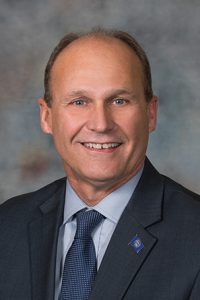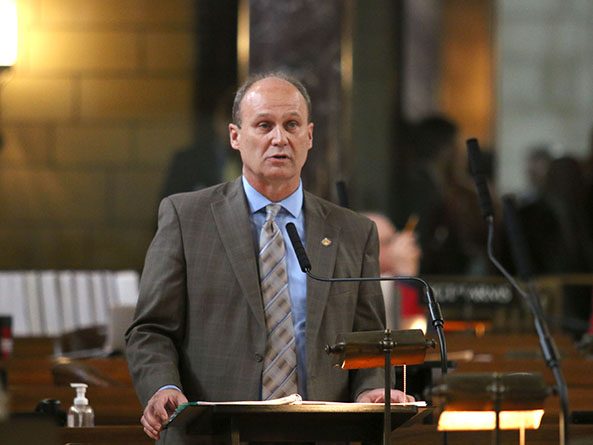Land bank expansion stalls
A bill that would allow municipalities throughout Nebraska to create or join land banks stalled on general file April 17.

LB424, as introduced by Grand Island Sen. Dan Quick, would allow any municipality in Nebraska to join an existing land bank—a tax-exempt political subdivision that acquires, manages and develops vacant and tax-delinquent properties—under the Nebraska Municipal Land Bank Act. Currently, only municipalities in Douglas and Sarpy counties are eligible under state law to create land banks.
Under the bill, only a metropolitan class city could create a stand-alone land bank. Currently, Omaha is the state’s only metropolitan class city.
The bill also would specify that a land bank is prohibited from levying property taxes.
An Urban Affairs Committee amendment would allow cities of the primary class to form their own land banks. Lincoln is currently the only primary class city in Nebraska.
Quick said land banks can address a lack of affordable housing and rehabilitate properties that private companies cannot, some of which are unsafe eyesores with broken windows and sprawling weeds.
“The builders in my community see land banks not as competition, but as part of the process,” Quick said. “These are properties that they do not want to acquire and are not on the tax rolls.”
Sen. John Stinner of Gering supported the bill, which he said would address abandoned and dilapidated properties—a persistent issue in his district exacerbated by a downturn in farm incomes and recent flooding.
“Rural Nebraska needs [land banks] worse than Omaha,” Stinner said. “Rural Nebraska [towns] need another tool to help make their community look the best that it can look.”
Sen. Mike Hilgers of Lincoln said he opposed the bill because board members of a land bank could live outside the communities in which they exist and could benefit financially from projects under the land bank’s purview.
“If you think it is important to ensure that the members who are buying this property—developing property, working in the community in competition with the private sector—be accountable to citizens of that community, don’t vote for this bill,” Hilgers said. “There is very little accountability and [land banks] have a tremendous amount of power.”
Also speaking in opposition was Kearney Sen. John Lowe. He said he was concerned that land banks would result in more property removed from the tax rolls.
“We’re worried about our property taxes and yet we’re trying to pass a bill where property is tax exempt,” Lowe said.
Sen. Carol Blood of Bellevue spoke in support of the bill, saying that many of the objections to land banks were inaccurate.
“To say a land bank is not accountable is ridiculous,” Blood said. “Land banks are policy-driven, they’re transparent, all transactions are publicly accountable.”
Sen. Matt Williams of Gothenburg said he’d been contacted by officials from the four largest towns in his district, and each expressed concern about blighted properties.
“And they have no solution to how to correct that situation,” Williams said.
The Legislature moved on to the next item on the agenda without voting on LB424 or pending amendments. Per a practice implemented by Speaker Jim Scheer, the sponsor of a bill that is facing a potential filibuster must demonstrate sufficient support for a cloture motion before the measure will be scheduled for additional debate.


